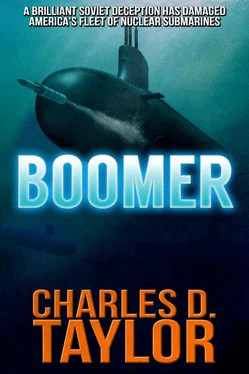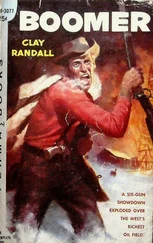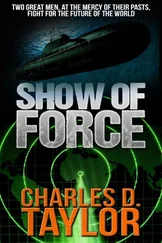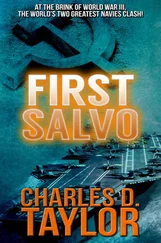“Sounds like the same old game to me,” Neil Arrow muttered. “Each word has a thousand meanings.”
Larsen pursed his lips. “You’ve been away from Washington too long. You don’t know how to interpret.” He was close to shaking his finger in Arrow’s direction to make his point, but thought better of it and placed both hands in his lap. “No one ever comes right out and says ‘we think you did such and such.’ And the other guy never just casually admits that he’s done something that pissed you off. The President didn’t say he thought Pasadena was a problem — just that we were asking her to surface — and the other guy didn’t acknowledge that he knew she was a problem, but he didn’t dispute it either. They’re talking. That means someone over there isn’t feeling too aggressive today.”
“That’s an interesting interpretation.” Robbie Newman saw things as any engineer who was Director of Naval Nuclear Propulsion would — everything was black and white, and Larsen hadn’t said a thing that wasn’t distinctly gray. “If I could add five cents to this, I think it’s time for a threat. If Florida ever gets out of this, I say use her. The only thing the Russians are going to understand is power.” There was an expression on Newman’s face that none of the others had ever seen. He’d always been a calm individual, an engineer who’d brought the Ohio class through early construction trauma — Electric Boat labor pains, he called it. He looked at the others around the table and blinked. “They’ve sunk my ships … killed my men. She’s got to put a missile in the air … got to scare the shit out of whoever in the Kremlin is hesitating. Decisions are the result of pressure,” he said with finality.
Admiral Larsen blinked. Of course, that was right. “I wish I’d thought of that myself.”
“You can tell him you did if you want,” Newman responded softly.
“Oh, come on. You know I wouldn’t do that,” Larsen answered. No one really knew what had happened beneath the Pacific waters, but it was something tragic and something that was bringing them closer to the brink by the hour. If nuclear war could be avoided, perhaps there might be an honorable way out of it all — if honor had anything to do with the situation.
“What I really mean,” Newman continued thoughtfully, “is that we have to have a method of getting even, an eye-for-an-eye sort of thing. The Russians have to understand that. I think the rest of the world also has to understand that they were willing to accept it. Whatever, the world is going to have a field day with both of us, if we avoid turning each other into glass. Imagine how many people are going to howl about this — you know, bringing the world to the brink of nuclear extinction with all our highfalutin weapons, that sort of thing,”
“That’s a lot of crap,” Larsen retorted, “a bunch of liberals beating their chests.”
Robbie Newman could be very patient, especially when he had a point to make. “There are more people who think what I just explained is absolutely logical, Ray.” He leaned forward slightly. “You do remember that most civilized people don’t like nuclear weapons? The only reason they’re accepted at all is that they’re a deterrent.”
Larsen only nodded.
“You might also consider the relatives of the men on Alaska and Nevada, or any others, for that matter, who are lost. How do we balance that? If we somehow are able to stop any more submarines from being sunk, how do we gain vengeance, or at least some sort of reparation for a plot gone bad?” Robbie Newman ran his hand through his thick shock of gray hair and glanced at each of the others. “I for one want to get back to the deterrent aspect of this business, if it’s at all possible. That means the President, if somehow there is a resolution to this, has to get back to the Kremlin with some suggestions for the General Secretary about how he can start grabbing his ankles if the Russians are indeed behind this whole thing.”
Neil Arrow was troubled. Of course, Robbie was right, but … His expression betrayed his emotions. “There’s no way you can make up for the loss of those men. The Russians aren’t simply going to say, ‘Here’re a few hundred of ours for you to do away with as you see fit.’“
“That’s not what I mean,” Admiral Newman’s reputation as a placid individual who never lost his composure remained firm. This moment was a perfect example. He looked over to Bennett. “Mark, you know where almost every Soviet submarine is right now that’s at sea.”
“Within reason.”
“You’re trailing a lot of them, right?”
“As many as we can. They’re getting better at slipping a tail.”
“Ray,” Newman said quietly, “my suggestion would be to take out a few Russian submarines. The President has to explain it. But we would expect no retaliation for what they lose.”
The Chief of Naval Operations had no idea how to respond. The idea was preposterous when he considered how he’d take the suggestion if it came from the other side — to sacrifice men and ships for … for avoiding a full-scale conflict? “I wouldn’t know how to propose—”
“May I do it for you?” Newman was quick to offer a solution.
“I guess … I guess there’s no harm….”
“No,” Newman answered, “there’s no harm. All the man can do is tell me to stuff it. We may never even get to that point, but conflicts are resolved by having an alternative solution before there’s no way out. Would you be kind enough to call and introduce me? He’s never met me before and probably has no idea who I am.”
Larsen glanced at the others. He was still hesitant. But each of them nodded his agreement.
Then Neil Arrow spoke up. “I think we all agree it’s a better way to reach a solution than obliterating each other. But Florida has to launch at least one missile. Then the Kremlin gets the message that our Trident system may be damaged but enough of it’s intact to make any first strike a mistake. And it shows the Soviets they’ve lost their ace in the hole — if she ever does surface,” he added glumly. “And, if we select a military target rather than a civilian one, that means we’re willing to call it even.” They were speculating. There was no assurance this plan would ever take place.
“You’re right, of course,” Larsen responded. “I’ll tell him that.”
* * *
It was difficult for the General Secretary to determine whether the sensation he was experiencing was physical or emotional. It was too complicated to put into words, but he somehow knew he was content. For the first time since this whole hideous situation had surfaced, too late for him to stop it, he felt that he had regained more control over future events — not firm control, not absolute, but he knew he was no longer grasping blindly at straws.
The “aggressive” ones had been detained. He was unsure how he would answer for that decision if Mother Russia survived the day, but much of his contentment was that he was surrounding himself with men he would not worry as much about. Even the head of the KGB was ambitious enough to accept what would have been called “a purge” in Stalin’s day. Old Joe must have felt good after one of those — surrounded by loyal, terrified comrades!
“The Americans appear close to figuring out what may have happened to their submarines,” he began tentatively. He wasn’t really sure how much the Americans did know, but they were on to something. The earlier concerns he’d discussed with his wife had grown more real as a result of that call. “I’ve just concluded a conversation with their President. He called me. They’re grasping at straws, no doubt about that, but he brought up the name Pasadena too often for me to believe anything else.”
Читать дальше












